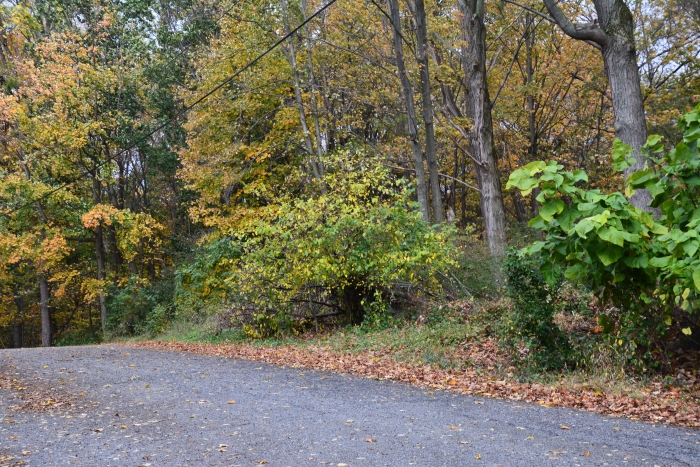Also discusses 5G regulation, sewer breakdown
The fate of 4.2 tree-covered acres on Secor Street dominated the agenda twice in six days as the Nelsonville Village Board and residents continued debating whether to protect them with a conservation easement.
At the first session, on Feb. 12, the board also reviewed results of a survey in which 75 of 94 respondents backed measures to safeguard the village-owned parcel.
When the discussion resumed on Tuesday (Feb. 18), the focus included the role, if any, of a public referendum.
For months the board has considered incorporating the land into an easement adopted by Nelsonville and the Open Space Institute 20 years ago to protect the adjacent, 112-acre Nelsonville Woods. Under that agreement, the village owns the woods, which OSI oversees.
Zoned for multi-family housing, the Secor property, which contains wetlands, was eyed in 2017 as a possible location for a cell tower that will be constructed on Rockledge Road overlooking the Cold Spring Cemetery.
In the latest go-round, as on previous occasions, some residents strongly backed the OSI-village agreement. Others opposed it or wanted a public vote.
“Why can’t we just leave it and not have OSI involved?” resident Gloria Van Tassel asked on Feb. 12. “Just let the property be there.”
Mayor Mike Bowman responded that the proposed OSI deal “takes the possibility of this property being misused off the table,” preventing a future board from selling it for development or allowing a commercial venture to occupy it. To protect it, the OSI easement “is the best option,” he said.
Under a draft agreement, even if the acreage is included in the conservation easement, the village could, with OSI’s permission, build a modest structure such as a restroom or education center, create a playground or tap underground water for village needs.
Resident Heidi Wendel urged the Village Board to avoid building anything there. “Land is finite” and “every inch should be preserved to the maximum extent possible,” she said on Feb. 12. During the Feb. 18 follow-up discussion, she added that “there’s enormous community sentiment that the land be preserved” and encouraged the board to promptly finalize arrangements with OSI.
Another resident, Kenneth Levine, argued against the easement. “How does this benefit the village?,” he said on Feb. 18. “I understand green space. I love it. But why would you give away something we might need in the future?”
Bowman emphasized that “we own the property now and we will own it after OSI puts a conservation easement on it.”
Former Trustee Alan Potts advocated letting voters decide, and on Feb. 12, proposed a question: “Do you support signing away the village rights to the land?”
Potts pressed the issue again on Tuesday and accused board members of backsliding. He said that, during a meeting in August, Bowman had endorsed a public referendum.
The mayor responded that the board relies on guidance from its lawyer, Brian Morgan, and that over the months since it has better understood when to call referendums. He reiterated what he and Morgan had asserted the week before: That no citizens’ vote is needed to make an agreement with OSI.
Further, Bowman said on Tuesday, “I don’t see the point” of a referendum, “other than just another opportunity to go out there and scream that we’re giving away a piece of property, which is not what we’re doing, or that we’re relinquishing our rights to a piece of property, which is not what we’re doing. We’re protecting a piece of property.”
Future tech
Also on Tuesday, the board held a public hearing on its draft law to regulate 5G telecommunications installations, which sometimes are installed on utility poles and structures and are seen as likely successors to cell towers.
After receiving a few low-key comments from audience members, the board planned to tweak the draft before a vote.
“It’s our responsibility to pass this, because this technology is going to be here tomorrow,” Bowman said.
Bowman noted that on Jan. 29 the federal judge hearing a lawsuit brought by Homeland Towers and Verizon against the village over the Rockledge cell tower project ratified a negotiated settlement that the board approved on Jan. 21.
Pearl Street sewer
The mayor announced on Tuesday that a partial collapse in a private sewer line on Pearl Street required emergency repairs by the village because it posed a public health threat. Most Nelsonville properties depend on septic systems, but a handful tie into the Pearl Street line, which connects to nearby Cold Spring sewer pipes.
The latest crisis “just highlights the need” for residents who use the Pearl Street sewer “to figure out a long-term solution,” which “is not going to be very cheap,” Bowman said. He said that residents probably will need to establish a sewer district.
